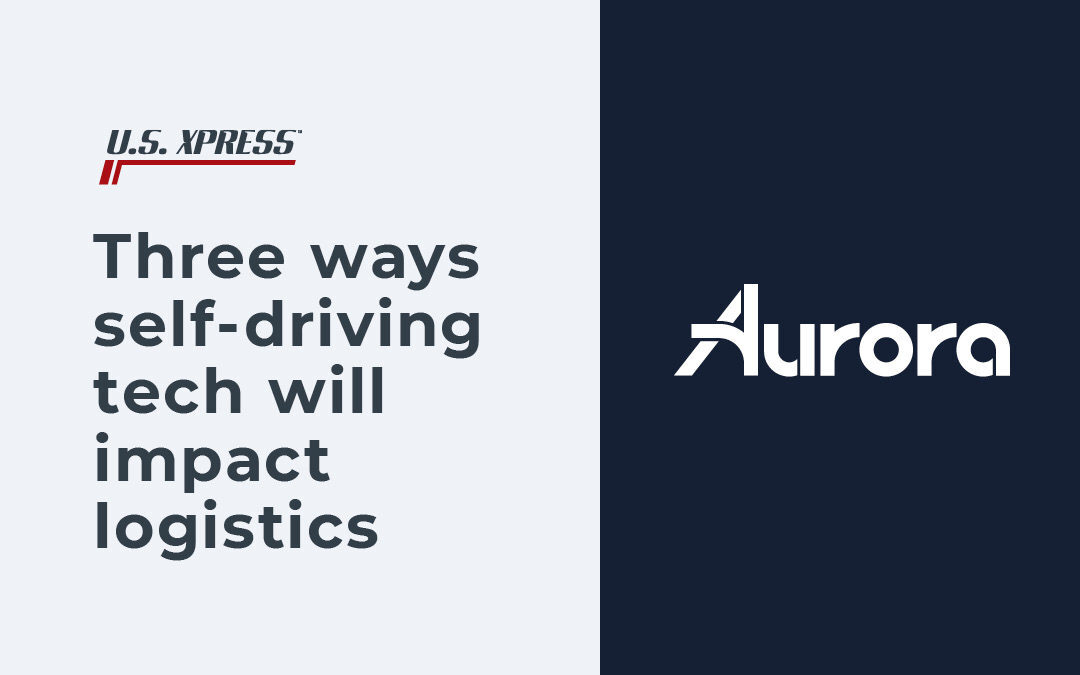Autonomous trucks can add capacity while improving the lives of professional drivers.
Autonomous trucks will be on the road sooner than you may expect, and they’ll be a key part of how goods are moved, expanding capacity, improving the lives of professional drivers, and creating new jobs.
Though autonomous trucks could hit the road as soon as 2023, we’re not replacing our professional drivers with robots — you can’t replicate the deep knowledge and judgement of highly skilled drivers. They’re the lifeblood of our industry.
So, how will autonomous trucks affect logistics? Partnerships like ours with Aurora, the latest of a group of agreements we have with autonomous developers, will change the industry for the better. Consider these three potential effects of putting autonomous trucks on the road.
Self-driving tech can dramatically expand capacity – Professional drivers follow strict hours of service requirements, but autonomous trucks won’t be bound by those constraints. We estimate that one self-driving truck will have twice the utilization as a human-operated truck, effectively doubling capacity. Tonnage is projected to grow by about 2.5% each year, which could mean we’ll need 4.2 million professional truck drivers on the road by 2030. Given the existing driver shortage and the need to add up to 1 million drivers in the next 10-15 years, autonomous trucks are a promising option to meet the country’s growing capacity needs.
Ultimately, autonomous trucks could improve drivers’ lives – This may sound counterintuitive, but self-driving trucks could take on less desirable routes drivers often avoid. They may be routes that keep professional drivers on the road for long periods of time, lack service centers or truck stops, or be far from home. These types of lanes can be handled by autonomous trucks, meaning professional drivers can be shifted to routes close to home on a more consistent and reliable schedule. Professional drivers will get more predictable hours and more time at home with their families, something we know they want and need.
Create new jobs – Autonomous vehicles require special tools and knowledge to maintain. We’ll need technicians, computer scientists, developers, and more to support this next generation of trucks. We’ll need managers and staff at autonomous-specific service centers. Amid fears that these trucks will reduce the need for employees, we anticipate the need for more logistics professionals.
“The future of trucking will involve innovative technology that these developers are creating, which is why we’re collaborating now to assure we’re first to market with autonomous trucks,” said Eric Fuller, President & CEO of U.S. Xpress. “Self-driving technology will afford us more solutions that we can pass on to our customers, all while benefitting our professional drivers. It’s a real win-win.”
The future of logistics is knocking at the door, and self-driving trucks stand to make our professional drivers happier, help combat supply chain stressors, and create new jobs. We know capacity will be expanded, and our customers will be able to ship more goods faster. What’s not to love? As we look ahead at the future of logistics, we’ll have more exciting announcements, and you’ll be the first to hear about them.


